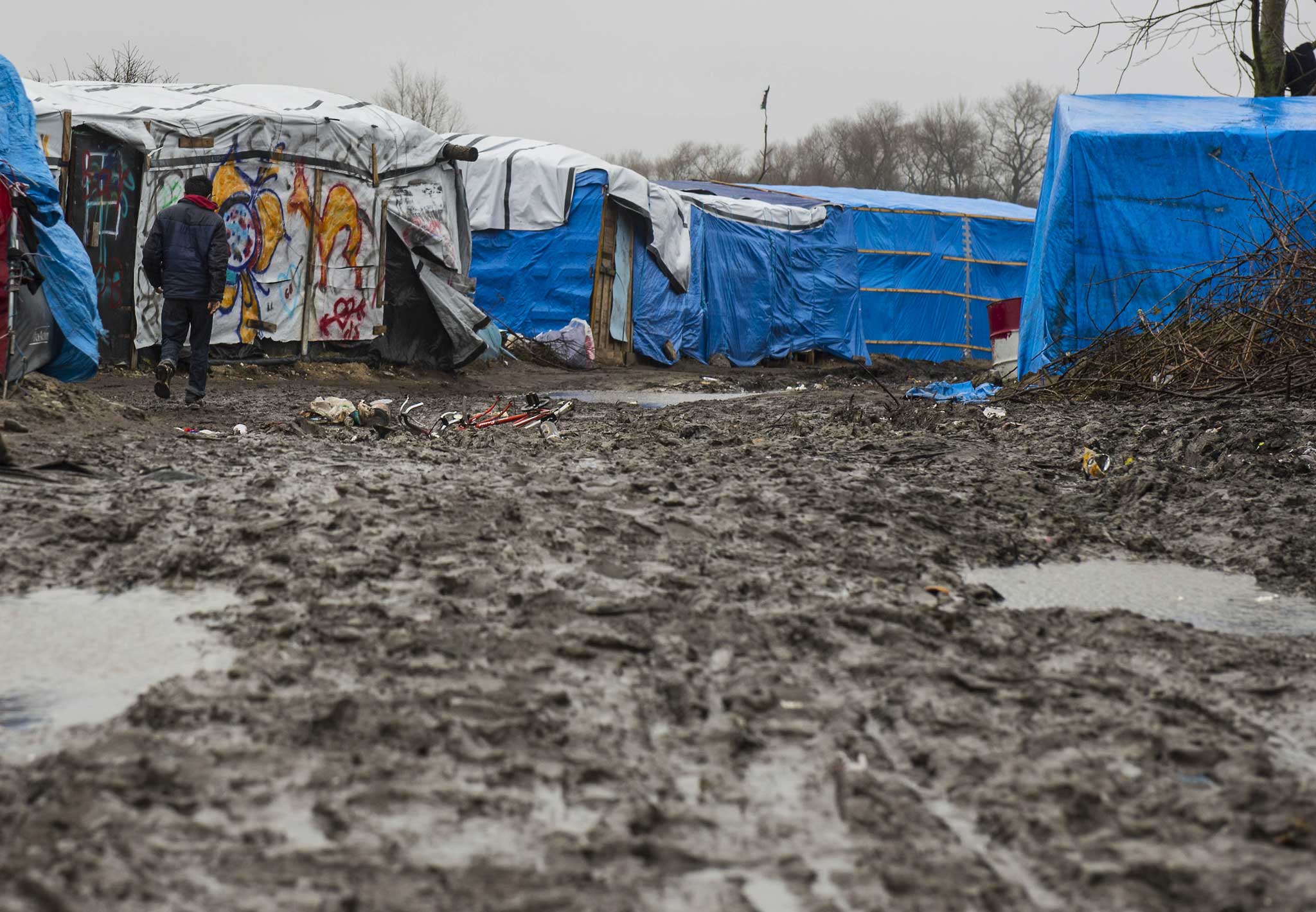Britain rejects French push to end Calais 'jungle' border deal
French politicians are pushing for the end of the Le Touquet deal which they blame for creating the Jungle camp

The British government is refusing to budge on French calls to allow refugees in the Calais “jungle” camp to claim asylum in the UK.
Home Secretary Amber Rudd is expected to stand firm on the issue in a visit to Paris on Tuesday, where she will meet her counterpart Bernard Cazeneuve for the first time.
There have been calls from senior French politicians to revisit the so-called Le Touquet agreement, which allows the establishment of British border controls on the French side of the channel. The default arrangement when countries have a border is for controls to be located in a state’s own territory.
Nicholas Sarkozy, the former French president who has announced he will run for office again next year, has called for changes to the deal, which he says created and is sustaining the camp.
“I’m demanding the opening of a centre in Britain to deal with asylum seekers in Britain, so that Britain can do the work that concerns them,” he said in a speech this weekend.
“The Jungle should not be in Calais or anywhere else, because this is a republic and those with no rights to be here should return to their country.”
The presidential frontrunner is backed by Calais regional president Xavier Bertrand, who on Monday told the BBC: “It’s not possible to keep people here without a new agreement between the two governments.”
Officially the border control accord is bi-lateral and therefore remains valid even if Britain leaves the EU. Government sources in Paris have however previous said it is “unlikely” to be able to continue its present treaty arrangements with a “non-EU state”.

But the British government has rejected any change whatsoever to the agreement. A Home Office source said: “This is a complete non-starter. The Home Secretary is crystal clear that people in need of protection should seek asylum in the first safe country they enter. That’s the long-held norm, and we are going to stick to it.”
A departmental spokesperson added: “The French government has repeatedly made it clear that removing the juxtaposed controls would not be in the interests of France.”
Comments attributed to another Whitehall source in The Times newspaper appear to threaten France with the withdrawal of security cooperation if the agreement was suspended.
“It is a bilateral arrangement. They depend on us for a lot of security advice and co- operation after the Nice attack,” the source said.
“There are other elements in our security relationship that I don’t think they would be interested in having changed.”
Andy Burnham, the shadow home secretary, said explicitly linking the border agreement with the Nice attack was “crass and insensitive”.
“Given all the security concerns France as at this present time, the UK should be providing unconditional security support to our neighbour and ally,” he said.
“After all, the same terror networks that threaten France threaten security on British streets too.
“Theresa May should disown these comments without delay and make it clear that threatening a long-standing ally with the withdrawal of cooperation on counter-terrorism is not part of the UK’s negotiating position.”
Thousands of refugees fleeing war and Isis in Syria and Iraq have made the perilous journey across the Mediterranean and over land borders to get to Europe. Other refugees and migrants from other countries have also joined the camps in northern France – the most famous of which is the Jungle near Calais.
According to the latest information provided by the Help Refugees and l’Auberge des Migrants organisations, the population of the Calais “jungle” has risen to 9,106 – an increase of 29 per cent in the past month.
The French presidential election is scheduled to take place in April and May next year.
Join our commenting forum
Join thought-provoking conversations, follow other Independent readers and see their replies
Comments
Bookmark popover
Removed from bookmarks